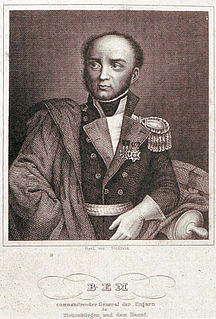 W
W"A Funeral Rhapsody in Memory of General Bem" is a poem by Polish poet Cyprian Norwid, a descendant of the Polish king John III Sobieski. It is an elegy for a famous Polish commander, Józef Bem, who was a hero of three nations, Polish, Hungarian and Turkish. It was written in 1851. The poem is a description of an imaginary funeral. It is described as a funeral of a medieval knight or Slavic warrior, encased in armour, with his horse and a falcon, accompanied by groups of boys and girls. The poem is especially interesting because of its form. It was written in rhymed hexameter. All the lines are made up of fifteen (7+8) syllables according to the pattern ' x ' x x ' x || ' x x ' x x ' x.
 W
WAnhelli is a prose poem written by Polish Romantic-era poet and dramatist Juliusz Słowacki in 1837 and published the following year in Paris.
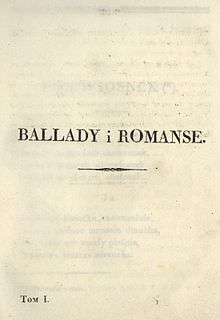 W
WBallads and Romances is a collection of ballads written by Polish Romantic-era poet Adam Mickiewicz in 1822 and first published in Vilnius, Russian Empire, as part of the first volume of his Poezje ("Poetry"). The publication of the collection is widely seen as the main manifesto of Polish romanticism as well as the beginning of the development of the ballad genre in the Polish literature. However, Ballads and Romances preserve some of the traditions of earlier literary genres popular in Poland such as duma, dumka and idyll.
 W
WBalladyna is a drama written by Juliusz Słowacki in 1834 in Geneva and published in 1839 in Paris. It is a notable work of Polish romanticism, focusing on the issues such as thirst for power and evolution of the criminal mind. The story revolves around the rise and fall of Balladyna, a fictional Slavic queen.
 W
WChess is a poem written by Jan Kochanowski, first published in 1564 or 1565. Inspired by Marco Girolamo Vida's Scacchia Ludus, it is a narrative poetry work that describes a game of chess between two men, Fiedor and Borzuj, who fight for the right to marry Anna, princess of Denmark. The poem anthropomorphises the pieces, presenting the game as a battle between two armies, in a style reminiscent of battle scenes in the works of Homer and Virgil.
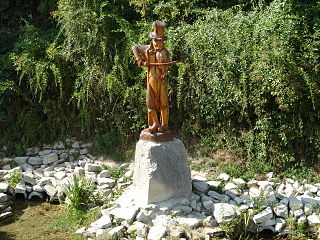 W
WChrząszcz by Jan Brzechwa is a poem famous for being considered one of the hardest-to-pronounce texts in Polish literature. It may cause problems even for adult, native Polish speakers.
 W
WThe Crimean Sonnets are a series of 18 Polish sonnets by Adam Mickiewicz, constituting an artistic telling of a journey through the Crimea. They were published in 1826, together with a cycle of love poems called the "Odessan Sonnets", in a collection called "Sonnets" (Sonety).
 W
WDavid's Psalter is a poetic translation into Polish of the Book of Psalms, by Jan Kochanowski, the most prominent poet of the Polish Renaissance. It was printed in 1579 in Kraków, at the Lazarus printing house.
 W
WDziady is a poetic drama by the Polish poet Adam Mickiewicz. It is considered one of the greatest works of both Polish and European Romanticism. To George Sand and Georg Brandes, Dziady was a supreme realization of Romantic drama theory, to be ranked with such works as Goethe's Faust and Byron's Manfred.
 W
WFables and Parables, by Ignacy Krasicki (1735–1801), is a work in a long international tradition of fable-writing that reaches back to antiquity. Krasicki's fables and parables have been described as being, "[l]ike Jean de La Fontaine's [fables],... amongst the best ever written, while in colour they are distinctly original, because Polish." They are, according to Czesław Miłosz, "the most durable among Krasicki's poems."
 W
WGrażyna is an 1823 narrative poem by Adam Mickiewicz, written in the summer of 1822 during a year-long sabbatical in Vilnius, while away from his teaching duties in Kaunas. Probably his first notable work.
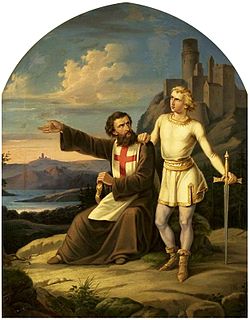 W
WKonrad Wallenrod is an 1828 narrative poem, in Polish, by Adam Mickiewicz, set in the 14th-century Grand Duchy of Lithuania.
 W
WKordian is a drama written in 1833, and published in 1834, by Juliusz Słowacki, one of the "Three Bards" of Polish literature. Kordian is one of the most notable works of Polish Romanticism and drama, and is considered one of Słowacki's best works.
 W
W"The Little Smuggler" is a famous poem by the Polish poet Henryka Łazowertówna (1909–1942). Written in the Warsaw Ghetto during the Holocaust, it tells the story of a small child who supports his starving family by — illegally, under Nazi dispensation — bringing over food supplies from the "Aryan side", thereby allowing for his family's survival while at the same time risking his own life. Indeed, the last stanza of the poem gives expression to the heroic child's fear — not of his own death but that of his mother who, in the event of the loss of her child, would be left without her daily sustenance.
 W
W"O Sacred Love of the Beloved Country" is a patriotic poem by the Polish Enlightenment author and poet, Ignacy Krasicki, published in 1774. It became one of Poland's national anthems.
 W
W"Ode to Youth" is an 1820 poem by Polish Romantic-era poet, dramatist and essayist Adam Mickiewicz.
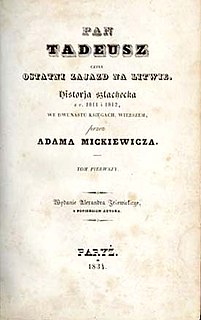 W
WPan Tadeusz is an epic poem by the Polish poet, writer, translator and philosopher Adam Mickiewicz. The book, written in Polish alexandrines, was first published on 28 June 1834 in Paris. It is deemed the last great epic poem in European literature.
 W
W"Płyniesz Olzo po dolinie" is a poem by Polish educator and poet Jan Kubisz. It is an unofficial anthem of Cieszyn Silesia, particularly of the Poles in Zaolzie. Its theme is the cultural assimilation of, and loss of national identity by, local Poles. The lyrics are centered on the Olza River, symbol of Cieszyn Silesia and Zaolzie.
 W
W"Pole and Hungarian brothers be" and "Pole and Hungarian, two good friends" are English translations of a popular saying about the traditional kinship, brotherhood, and camaraderie between Poles and Hungarians.
 W
WRadivilias is a Latin epic poem by Jonas Radvanas published in 1592. It is one of the major works of the 16th-century Lithuanian literature and one of the best examples of Renaissance literature in Lithuania. It uses hexameter and has 3,302 lines divided into four parts. It is dedicated to Mikołaj "the Red" Radziwiłł (1512–1584) and his major military victories in the Livonian War.
 W
WRota is an early 20th-century Polish poem, as well as a celebratory anthem, once proposed to be the Polish national anthem. Rota's lyrics were written in 1908 by activist for Polish independence, poet Maria Konopnicka as a protest against German Empire's policies of forced Germanization of Poles. Konopnicka wrote Rota in 1908 while staying in Cieszyn. The poem was published for the first time in Gwiazdka Cieszyńska newspaper on 7 November. The music was composed two years later by composer, conductor and concert organist, Feliks Nowowiejski.
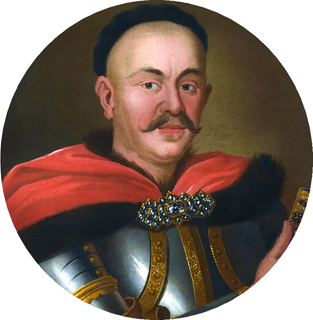 W
W"Sonnet on the Great Suffering of Jesus Christ" is a poem by the 17th-century Polish poet Stanisław Herakliusz Lubomirski. The poem is the last in the sequence The Poems of Lent.
 W
WJanek Wiśniewski is a fictional name given to a real person, Zbigniew Eugeniusz Godlewski, shot dead by security forces during the Polish 1970 protests in the city of Gdynia. The event was popularized across the country in the poem and song, known by the name of Ballad of Janek Wiśniewski.